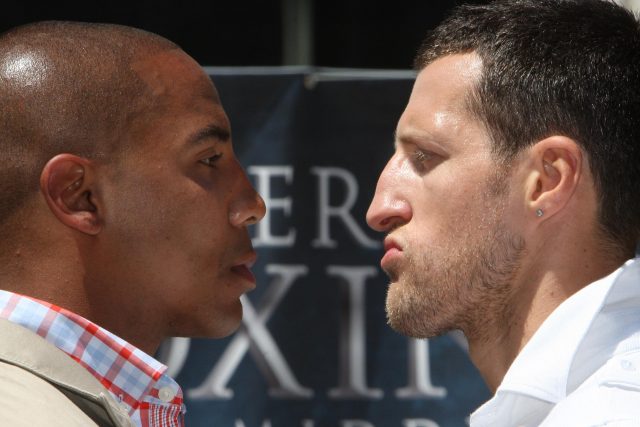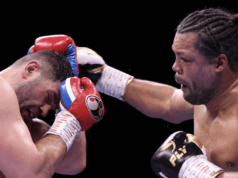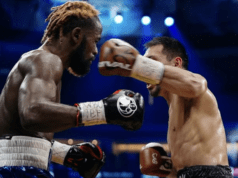The World Boxing Association (WBA) might be the original world sanctioning organization in boxing, but they took another step towards consigning themselves to the dust bin of sport’s history over the weekend by crowning Karoly Balzsay as their Super Middleweight Champion. Balzsay won the title by defeating Stanyslav Kashtanov in Donetsk, Ukraine over the weekend.
“But wait,” I hear you say. “Isn’t Andre Ward the WBA Super Middleweight Champion?” Actually, Ward is the “Super” Super Middleweight Champion, a designation the WBA gives to unified world champions so as to name a second man their “regular” world champion, and thereby collect double the sanctioning fees.

The WBA’s creation of their “super” championship was a ridiculous and flagrant display of greed as it was, but giving it to Andre Ward is ludicrous, since Ward has never even been in a unification fight. Furthermore, Mikkel Kessler was a “regular” WBA titleholder when Ward beat him, so he didn’t become “super” champ in the ring. The WBA is violating the stated purpose of creating the “super” championship by giving it to Ward, but hey, when has the WBA ever really been concerned with own rules?
If only the WBA’s calumny stopped there. Making Ward the “super” champion created a “regular” champion slot, but that slot was already filled this weekend when Balzsay beat Kashtanov. Dimitri Sartison won that dubious accolade in 2009 by defeating Stjepan Bozic in Germany, and at the time of this article’s publication, the WBA had not stripped him. Therefore the WBA currently has three different boxers (Ward, Sartison and now Balzsay) with a claim on their 168-lb world championship!
Boxing writers like myself typically respond by scoffing at the extra championships, dismissing them as fakes and focusing on the main titleholder (Ward in this case), and the WBA’s championship antics are nothing new. However, by designating three champions in the same division without bothering to offer an even remotely plausible excuse the WBA has sunk to a new low.
Were it not for the fact that the WBA has a healthy slate of champions, the WBA would surely be flirting with irrelevancy. The organization is deemed legitimate only because the boxing press, broadcasters like HBO, Showtime and Sky, and the International Boxing Hall of Fame say it is so. It is not inconceivable that one day in the near future, when the WBA’s slate of champions is thinner and its standards have continued to slide, that an editor at The Ring magazine or a producer at ESPN will become fed up with the WBA’s misbehavior and start ignoring the WBA’s black belt.
This is not as unrealistic as it sounds. Once upon a time, HBO had a formal broadcast team policy to never specify any world titles by name. If they are carried out with consistency and resolve, decisions like that have a tendency to catch on and become a movement.











